Like a lot of Portlanders, Ryan Buchanan loves his city—and hates how it’s governed.
He feels defeated by what he sees in Northwest Portland, where he will soon move his digital marketing firm: trash, tents, political feuds and seemingly no progress.
“I’ve been to a bunch of other cities in the U.S. in the last 12 months, and we’re far more broken,” Buchanan says.
For years, elected officials have told Portlanders: Change our form of government and we’ll become better leaders.
Portland law says the city should formally consider every 10 years whether to change the city’s charter; that is, the laws that govern the city, including its form of government and elections.
Mayor Ted Wheeler and his colleagues on the City Council picked a group of Portlanders to do just that in the winter of 2020. At the time, many Portlanders thought city charter reform was one thing everybody could agree on.
Last month, after a year and a half of work, the Charter Commission issued its recommendations for a new form of city government in a single ballot measure, and we will all get to vote on it this November.
Wheeler says he has concerns and doesn’t understand the proposal.
Commissioner Mingus Mapps doesn’t like it either.
Commissioner Dan Ryan has also expressed concerns.
A lot of politically connected people are already planning a political campaign to defeat the reform measure at the ballot box.
The proposed charter reforms, which will ultimately cost the city $1.9 million to conceive and discuss (this includes other alterations to the city’s charter that will be discussed in Phase 2 by the commission), appear to be at risk of an untimely death—the latest and most galling exhibit of this city’s dysfunction. It’s become a flashpoint for Portland’s deep disagreements about whom the city should represent and what its core values are.
Steve Moskowitz, a rabbi, former city attorney and top adviser to the late Mayor Bud Clark, has joined a group of Portlanders who oppose the measure. Moskowitz says he’s deeply disappointed.
“I was very hopeful that we were going to produce a product that everyone was on board with,” Moskowitz says. “Unfortunately, it’s full of all kinds of problematic issues.”
Robin Ye, chief of staff to an Oregon legislator and one of the 20 charter review commissioners appointed by the City Council, says the real problem is the very opposition Moskowitz represents.
“It’s incredibly disappointing, albeit hardly surprising, about the bad faith opposition that emerged,” Ye says, “and I think Portlanders can smell what they’re selling.”
How did the city’s plan to change its form of government to meet today’s challenges turn into another quintessential Portland brawl? To understand, WW read meeting notes, talked to more than two dozen people closely engaged in the fight, and spoke to those involved in prior attempts at charter reform over the course of Portland’s history.
What we found was a stalemate that could have been avoided because its dynamics are so familiar to even a casual observer of Portland politics: idealistic progressives who want to redistribute power to the silenced, quarreling with politically connected traditionalists who think the city is squandering its best virtues.
What’s worse is the inattention of Mayor Wheeler and other city leaders that has allowed values that ought to be harmonious—diversity and functionality—to be used as weapons against each other.
Here’s how that happened.
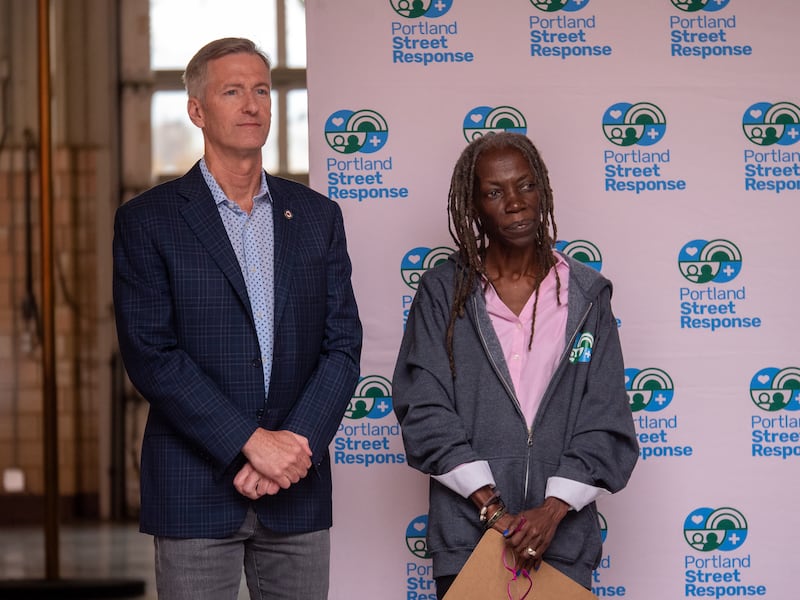
1. City officials have long claimed that Portland’s form of government makes it impossible for them to do their jobs well.
The structure of City Hall in Portland is found in no other major city in the United States. The five members of the City Council, including the mayor, each get a vote—and city commissioners each manage a portfolio of city bureaus.
Many feel this arrangement has several flaws. First, the mayor has little real power other than the authority to assign bureaus and propose the city’s budget, and personal powers of persuasion. Second, the setup requires politicians not just to vote on matters before the council, but to actually manage bureaus, something many of them are ill-equipped to do. This can lead to turf battles in which commissioners are more interested in protecting their bureaus than looking out for the larger civic good.
Most current commissioners have long asked for a change. Mapps called the city’s form of government “inexcusable.” Commissioner Dan Ryan blamed the current system for his inability to quickly open tiny-house villages for homeless people.
In his State of the City address just last May, Wheeler said fixing the city hinged on voters.
“Portlanders will have an opportunity to vote at the ballot box to do away with our current, systemically bigoted, red tape-ridden, antiquated form of city government,” the mayor said. “I hope Portlanders will vote yes’ this November to change it.”
Yet now, all three men have doubts about the reform measure that’s been offered.
2. When the Portland Charter Commission was formed, members settled on their own set of goals.
The commission consists of 20 members, each appointed by a city commissioner. In 2020, 275 people applied to be charter commissioners. Each city commissioner, including the mayor, nominated four.
Candace Avalos was a commissioner chosen by Commissioner Jo Ann Hardesty.
A Black and Latina woman, Avalos, 33, worked at Portland State University as a student adviser for six years.
Like many of the applicants selected to serve on the commission, Avalos has dedicated her life to social justice. She’s executive director of the nonprofit Verde, which is distributing air conditioners to low-income families using proceeds from the Portland Clean Energy Fund.
She’s candid, smart and opinionated—enough to gain a regular guest column in The Oregonian. She made an unsuccessful bid for City Council in 2020, losing to Commissioner Carmen Rubio.
“That was a big hill to climb,” she says. “You could call me crazy for it.”
The city’s written directives for the Charter Commission are loose: “To review and recommend amendments to this Charter.” It also directs the commission to “determine its own rules of procedure” and to choose its own areas of the charter to reconsider.
The commission outlined its desired outcomes early on: to bring more diverse voices into elections and city politics, and add councilors who understand community needs and are committed to anti-racism and equity. Commissioners wrote that they hoped to produce a form of government where elected officials would look like the community they represent.
In other words, commission members saw their primary task as making City Hall more inclusive.
“At the heart of what our proposal is saying is that our government is better when more of us have a say,” says commissioner Ye. “When more of us can see folks on council that understand our experiences and will fight for our interests.”
Avalos agrees: “In 10 years, it’s going to change the politics, what kind of people run, and the way that we govern.”
But Bob Ball, a charter commissioner in 2007, says that could dampen its chances of passing: “If you only look at it from any one lens, such as a small business lens or an equity lens, that could hurt it and be a fatal flaw.”
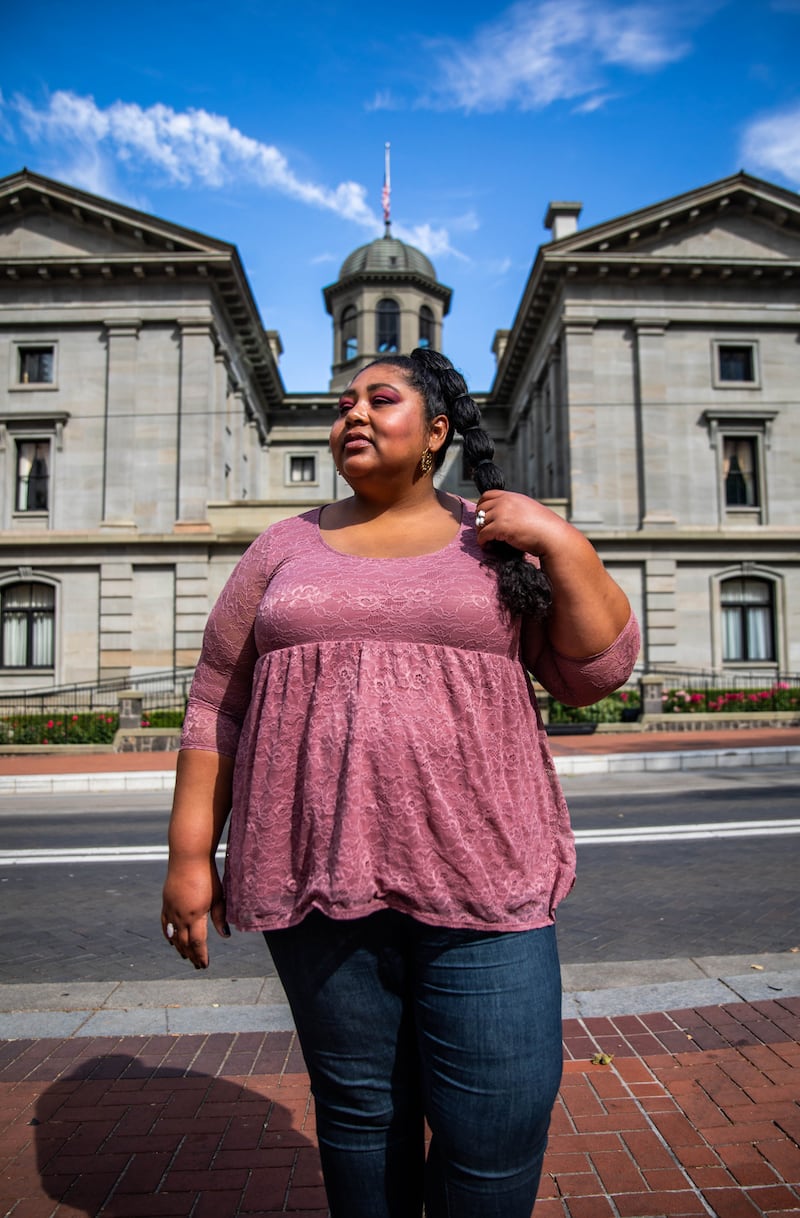
3. The commission emerged with three proposed reforms. No city in America has tried to achieve all three at the same time.
This year’s proposed overhaul of city government is ambitious. It would:
1. Strip the mayor of a council vote, except as a tiebreaker. All administrative duties and bureau oversight would be handed to a newly created position of city administrator, who would be hired by the mayor and confirmed by a majority of council members.
2. The number of council members would increase from five to 12, with three members elected from each of four districts. (Currently, all five commissioners are elected citywide.)
3. And those commissioners would be elected using a relatively novel system called “ranked-choice voting.”
Many cities use city administrators or managers. Over 40 cities use ranked-choice voting. Three major cities use multi-member districts. But no city has combined all three of the reforms the charter commission is sending to the ballot.
4. Perhaps the most popular aspect of the proposed reforms is that Portland would be run by a city administrator.
Almost every person WW spoke to for this story agreed it’s high time the city scrapped its commission form of government and adopted a city administrator who would oversee daily city functions like trash pickup and 911 response, allowing politicians to focus on policy—i.e., whether to widen Interstate 5 or ban oil trains from rolling through the city.
Becca Uherbelau, a charter commissioner, says it was a consistent priority.
Indeed, 3,625 cities across the U.S.—from Los Angeles to Frankfort, Ky.—employ a city administrator or manager.
“It’s hard to find anybody who wouldn’t want that,” Moskowitz adds.
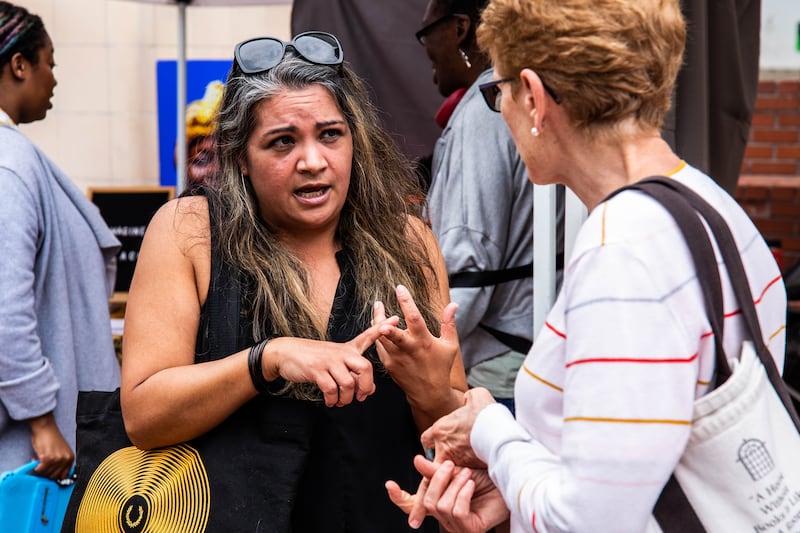
5. The reform measure calls for ranked-choice voting, an unfamiliar and controversial method, to elect city commissioners.
If the commission’s package of reforms passes, Portland voters will pick their three favorite candidates to represent them on the City Council come 2024. Voters rank as few or many candidates as they wish.
Each candidate must reach 25% plus one of the votes in order to get elected. If only one candidate reaches that threshold once all votes are tallied, surplus votes are then given to the next candidate listed on the voter’s ballot.
“The goal of ranked-choice voting is to enable voters to have a bigger say on their representation,” says Debbie Kaye, president of the League of Women Voters of Portland. “If a voter’s first choice doesn’t [meet the threshold], their second choice is [counted].”
Who uses ranked-choice voting? The Academy Awards, for one. So do New York City, Cambridge, Mass., and around 40 other cities. But ranked choice is still uncommon.
In New York City last year, after ranked choice was used to elect the mayor, politicians sparred over whether the method helped or hurt voter turnout. Daneek Miller, co-chair of the City Council’s Black, Latino and Asian Caucus, called it “sophisticated voter suppression” because so many voters were baffled. (Others called this an elitist and racist argument.)
Critics in Portland worry that such a system allows candidates with a narrow base of support a window to eke out a victory, and that it’s confusing.
“It seems patently obvious to me that you don’t want a small group of people to decide an election,” says downtown property owner John Russell, a close adviser to several Portland mayors.
6. The city would be divided into geographic sections—each represented by three commissioners.
Under the proposed reform measure, Portland would have four geographic districts, each with three council representatives.
Supporters say districts with multiple elected leaders offer voters a better chance to get someone who represents their interests. Ethnic groups, renters, young voters: Any of them could form coalitions large enough to score one of a district’s three seats.
Ye says it’s an attempt to “move away from a politics of domination, where the same 50%-plus-one majority citywide can pick all the council seats, and towards a politics of inclusion.”
Naysayers take issue with the combination of ranked-choice voting and multimember districts. They say it could enable a system whereby all three victorious candidates in a district came from the same political faction.
“Each candidate will ask the voters to vote for them for No. 1, vote for their second partner as No. 2, and their third partner as No. 3, and so on,” says Chuck Duffy, a onetime staffer to late Mayor Bud Clark.
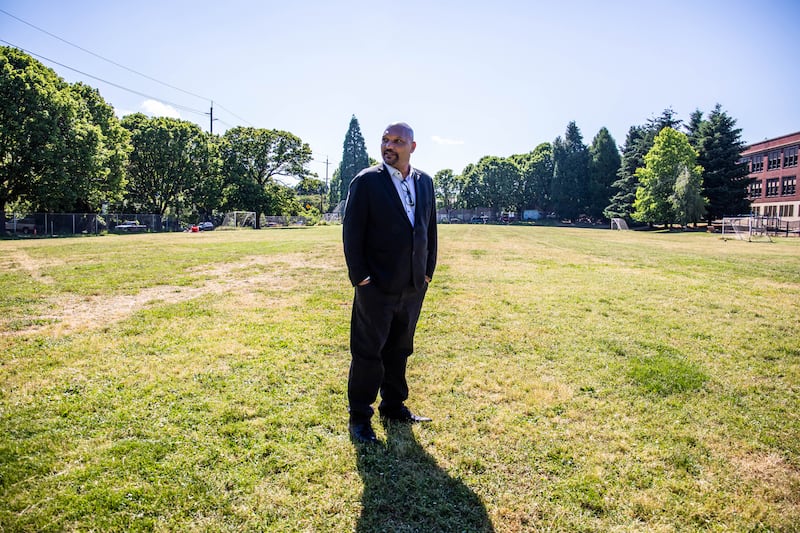
7. Portland voters will need to agree to all of this—or none of it.
Voters will see all of these changes presented in one yes-or-no question on the November ballot. It’s a combo meal—and there are no substitutions.
“We both need structural change and change to give Portlanders more voice and choice in who leads those structures,” Uherbelau says. “They’re not just related or unified. They’re interdependent.”
The decision to bundle all three proposals into one question was made by the Charter Commission. Instead of allowing voters to approve a city administrator form of government but oppose multimember districts, for example, the commission told Portland to take all or none of it.
That’s not going over so well among city leaders and is largely the reason the measure is finding mixed support from the City Council.
Ryan says he’s speaking with commission members to “see if I could get to a yes.”
“The fact that today I’m in an ‘I don’t know place,’ like most voters, there’s a good chance you’ll vote no,” Ryan says. “But I’m seriously in an ‘I don’t know’ place.”
The Portland Business Alliance wants a city administrator form of government but is worried the other two reforms will kill it; it is now poised to go to court to try and get the three proposals separated into individual questions on the ballot.
Russell, the downtown property owner, says it was crazy to combine the three reforms in one measure: “And it may just fail because of the complexity of it.”
Last fall, Commissioner Mapps, who ousted Chloe Eudaly from her City Council seat in 2020, created a political action committee—christened after his own middle name, Ulysses—explicitly to support city charter reform.
In his first two years on the council, Mapps, 54, a former political science professor who is Black, has largely argued for the interests of homeowners. He’s even-keeled and often stiff—the kind of personality that reassures some in a city where tempers are often short. He wants the city to hire more police officers and enforce laws against camping on public property.
Those positions match the public mood—so much so that multiple sources who spoke to WW for this story speculated that Mapps was preparing a run for mayor.
But, on June 16, Mapps said he’d changed his views on charter reform because he was unhappy with the result. “It’s unlike anything that’s appeared in American politics,” he says, echoing the views of a few Charter Commission members, who, in the minority, claimed the reform package was “untested.”
Mapps now intends to use Ulysses PAC (which has $23,000 in the bank) to campaign against the reform package, particularly because all the reforms are bundled into one ballot measure.
“It literally makes it impossible to sort out whether this is going to help the city more or hurt,” Mapps told WW, adding that he would like to lead “a City Council effort to submit an alternative proposal” in 2023.
Some point out that the proposed reforms would considerably dilute the power of Mapps and the other incumbent commissioners.
Their bureau assignments would be taken away from them. They would be one of 12 votes, not one of five. They’d be running to appeal to only a portion of Portland, not the entire city.
Commissioners Carmen Rubio and Jo Ann Hardesty wrote to WW in a joint statement that they want to “give Portlanders the space to reach their own informed conclusions” and will “support and execute the will of the voters.”
Former City Commissioner Randy Leonard, who campaigned against the 2007 measure to reform Portland’s government, says officials remaining mum about the proposal are abdicating their duties. “It’s the responsibility of council members to read it and understand it and become a voice.”
8. Portland’s old guard is preparing to fight the proposed measure.
Steve Moskowitz is perhaps best known as the Portland political apparatchik who was shot by his ex-wife seven times, including in the groin, in 1992.
Before that incident, which led him to Long Beach, Calif., to become a rabbi, he had been Portland’s deputy city attorney and then a top adviser to Mayor Bud Clark. WW described him and his wife in a 2004 story as “hippies who became yuppies without selling out.”
Moskowitz, 73, moved back to Portland three years ago. And he’s diving back into politics to defeat charter reform.
“I was aware of the enormous catastrophe the city has in terms of its ability to provide basic services in terms of public safety and livability,” Moskowitz says.
Alongside Duffy and recent City Council candidate Vadim Mozyrsky, Moskowitz is creating a PAC to fight the ballot measure called Partnership for Common Sense Government.
They’re being joined by a group of politically moderate Portlanders: former state lawmaker Stephen Kafoury, onetime City Commissioner Mike Lindberg, former head of the city’s economic development agency Pat LaCrosse, neighborhood activist Bob Weinstein, and Alisa Pyszka, who recently ran for Metro Council president.
Avalos says the opposition was brewing for months.
“The power brokers that have always had power in the city don’t want to lose that access. That’s what it looks like to me,” Avalos says. “Status quo is going to be the status quo.”

9. It’s going to be a heated campaign.
Both sides have already formed political action committees and are lining up donors.
Mapps and Moskowitz are well connected with downtown developers. Opposition PAC director Chuck Duffy says he’s spoken with prospective donors, but because the PAC hasn’t yet registered with the secretary of state, it cannot accept contributions. He says it has no intention of asking for support from Portland United, the independent expenditure campaign that made an unsuccessful play to oust Hardesty.
Opponents are currently shopping for a campaign manager.
They will face off with New Seasons co-founder Stan Amy, his wife, Christy Eugenis, and Jim and Sue Kelly—who wrote in an email to prospective donors that they would match up to $50,000 in contributions to the PAC formed to promote the measure.
Building Power for Communities of Color, which will run the “yes” campaign, declined to offer more details.
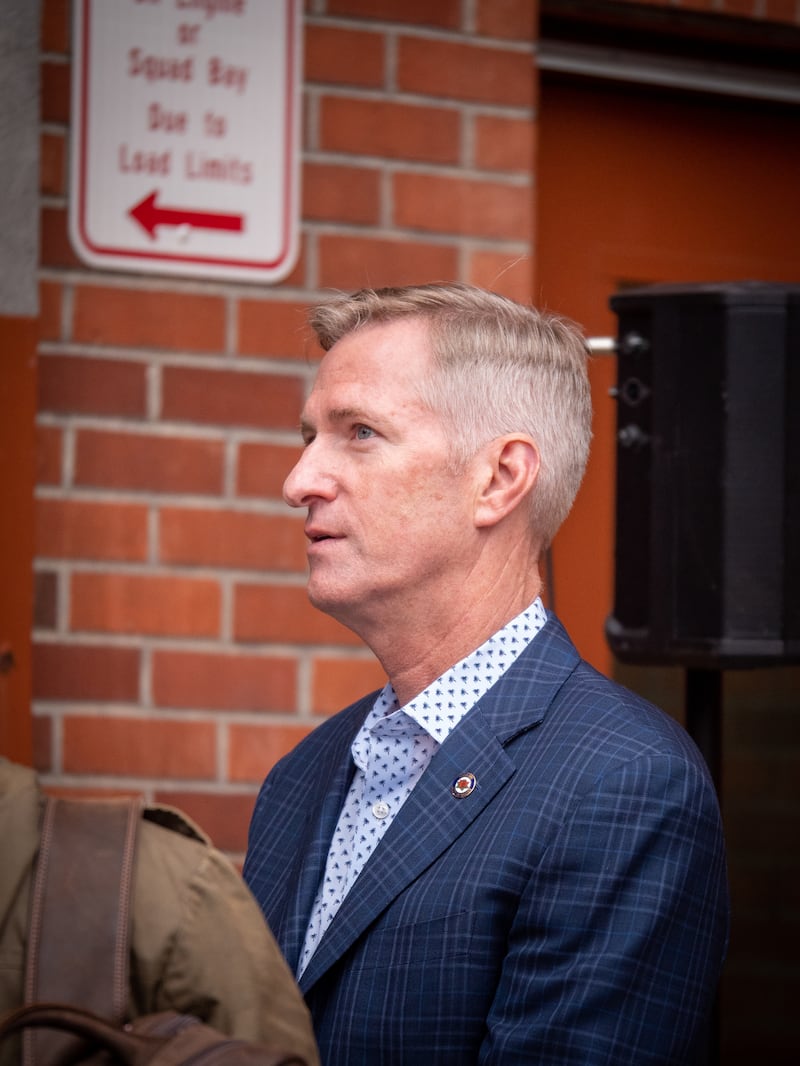
10. The process raises new questions about the mayor.
Last week in an interview, WW asked Wheeler if he would vote for the charter reform measure.
“You’re giving me a hypothetical that isn’t fair. I still don’t even understand all the facets of this; I literally just heard the proposal yesterday,” Wheeler said. (All Charter Commission meetings were open to the public, and its documents are publicly available.)
“If you put the ballot in front of me right this minute and said I had to vote,” he said when pressed, “I would vote no.”
That’s remarkable, given how often Wheeler has said he needs a new form of government to address the city’s problems as mayor.
Some observers see an irony: Wheeler helped pick the volunteers who crafted the proposal he now second-guesses.
“The [charter] commissioners were appointed to be independent people, so you’ve got a cast of characters that produced something that is unique,” Russell says. “I guess you get what you asked for.”
Commissioner Ryan says he was “on the job for half an hour and was told to look at those who applied. I did my best to make sure that we had a diverse opinion and demographic makeup.”
He and Wheeler defend the City Council’s hands-off approach: “I let them go into their work mode....I’m diving in now.”
Ye says voters should take little advice from a mayor who for more than a year said charter reform was the answer: “It’s hard for people to feel like the mayor’s analysis is worth much when he flip-flops so quickly.”
Wheeler now claims he can work within the current form of city government by issuing executive orders that go over the heads of his colleagues on the City Council. We asked why he hadn’t used that approach more liberally before this year rather than seeking a change in government.
“Are you debating me?” Wheeler said, visibly annoyed. “I’m just trying to give you an answer. Get to your real question.”
WW repeated the question: Portland voters have been told by Mayor Wheeler for more than a year that the commission form of government prevents him from being an effective mayor. So if he doesn’t support changing the city’s form of government now, what option does that leave?
“I actually believe I’ve been able to lead very successfully,” he said, “not because of the form of government, but despite it.”
If he and his colleagues have to keep working within that form of government, they will have a hard time finding anyone to blame but themselves.
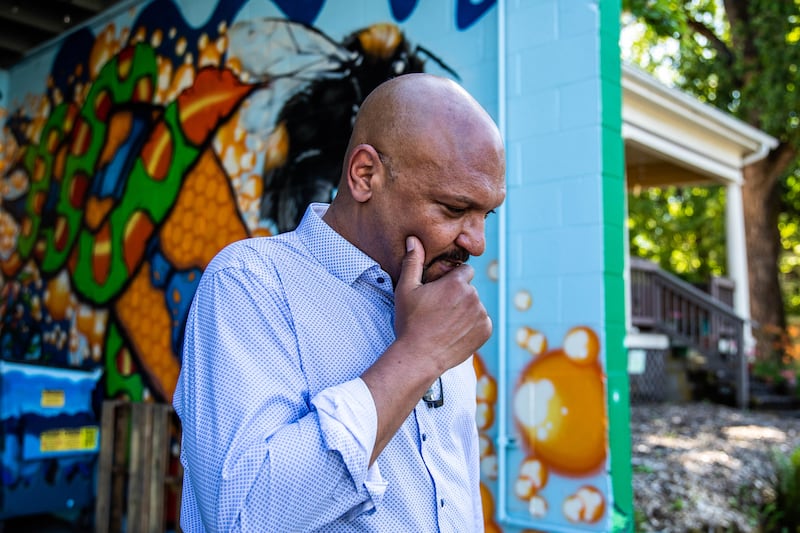
One More Thing!
Seven attempts to change Portland’s form of government have failed in the past century.
Since 1950, the city has on seven occasions presented voters with a proposal to change Portland’s form of government. Seven times voters said no.
In the two most recent attempts, in 2002 and 2007, organized opposition formed to kill the measure. Both times, opponents warned it would mean bigger government.
The 2007 proposal would have scrapped the current form of government and instead adopted a chief administrator who would oversee administrative tasks and bureaus, and a mayor who could hire and fire liberally.
Then-Commissioner Leonard spent months in a traveling roadshow of debates on the idea with then-Mayor Tom Potter. Leonard argued no.
“If the goal was to make city government more efficient and more responsive, there were probably good ways to do it, but handing bureaucracy over to an unelected city manager? Not one of them,” Leonard recalls.
It died dismally: 76% of voters said no.
“I remember voting against it in 2007 because I thought the city was doing fine, so why change it?” adds former City Commissioner Steve Novick. “Within a year of being on City Council, I changed my mind.”
Bob Ball was the chief petitioner in 2002 and then served on the 2007 commission that tried again. Voters preferred the devil they knew to the confusing plan on their ballots, he says.
Ball he offered to brief this year’s commission, he says, on the pitfalls that doomed his attempts at charter reform.
“I never heard back from them,” Ball says. “I would’ve said you’ve gotta keep it simple.”
Correction: Due to an editor’s error, WW misidentified the city Moskowitz moved to in the 1990s. Moskowitz moved to Long Beach, Calif., not Long Beach, Wash.
This article was published with support from the Jackson Foundation, whose mission is: “To promote the welfare of the public of the City of Portland or the State of Oregon, or both.”

